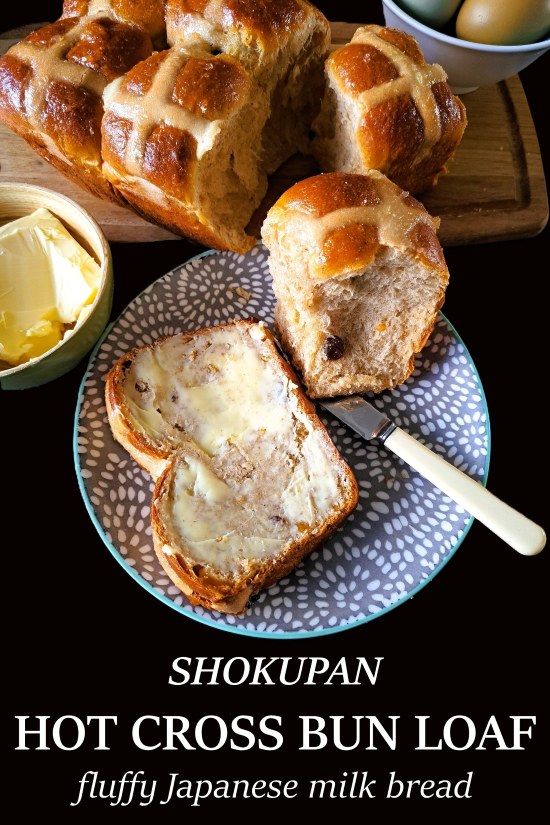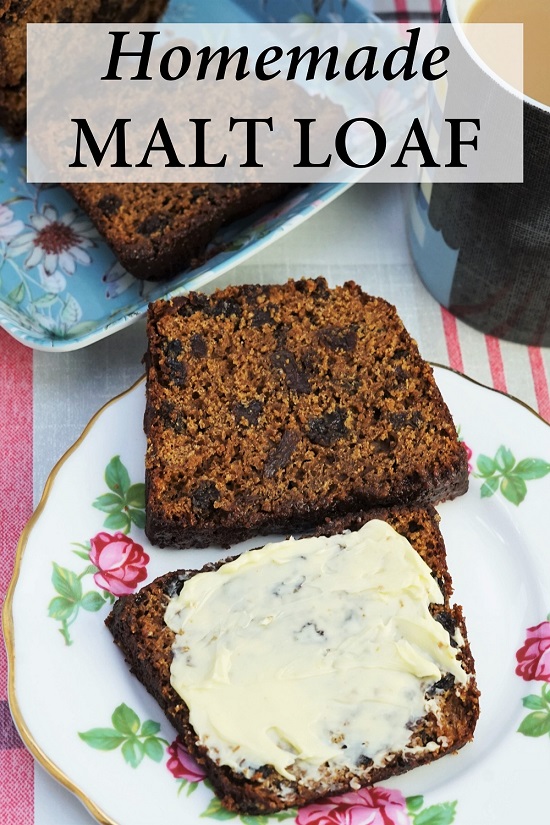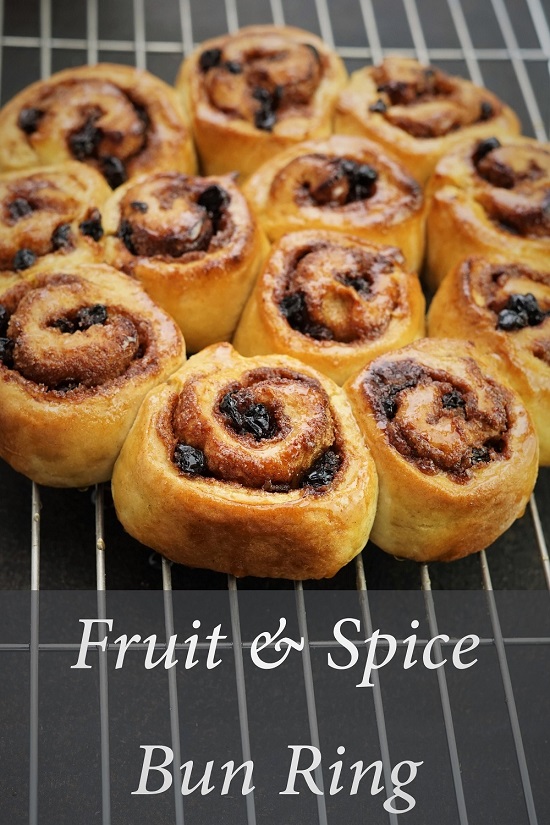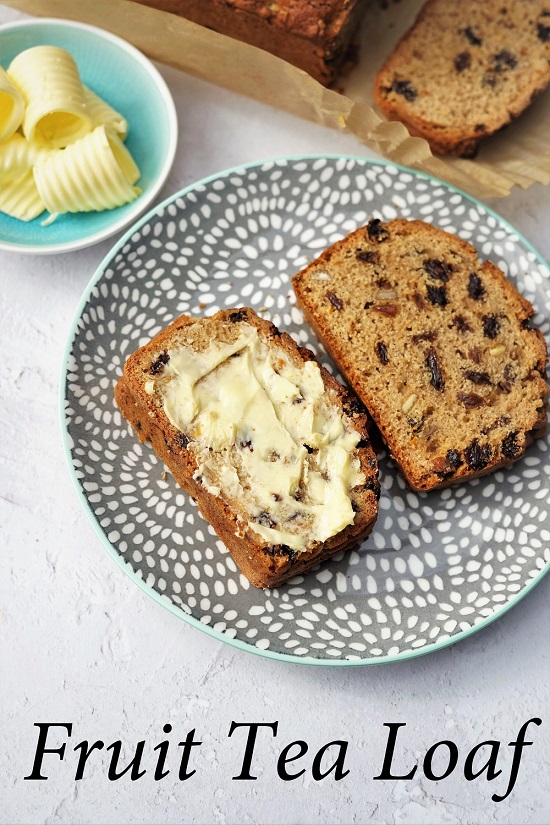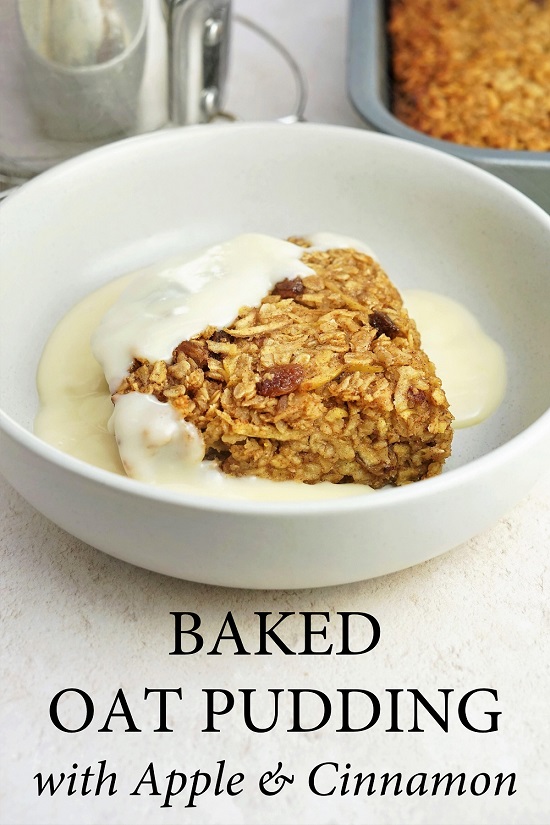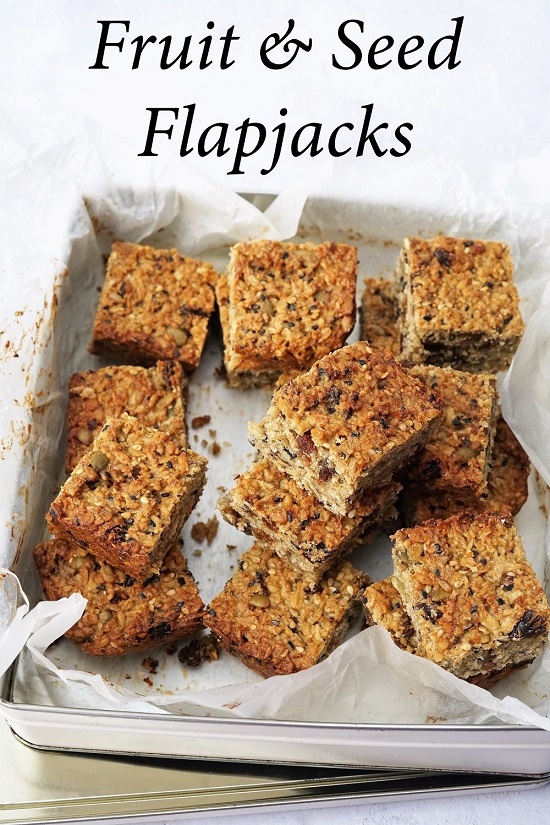Hot Cross Scones
Hot Cross Scones are a quick and easy, light, and fluffy alternative to hot cross buns. Full of spice and dried fruit, you can be enjoying this easy twist on traditional sultana scones in around thirty minutes.
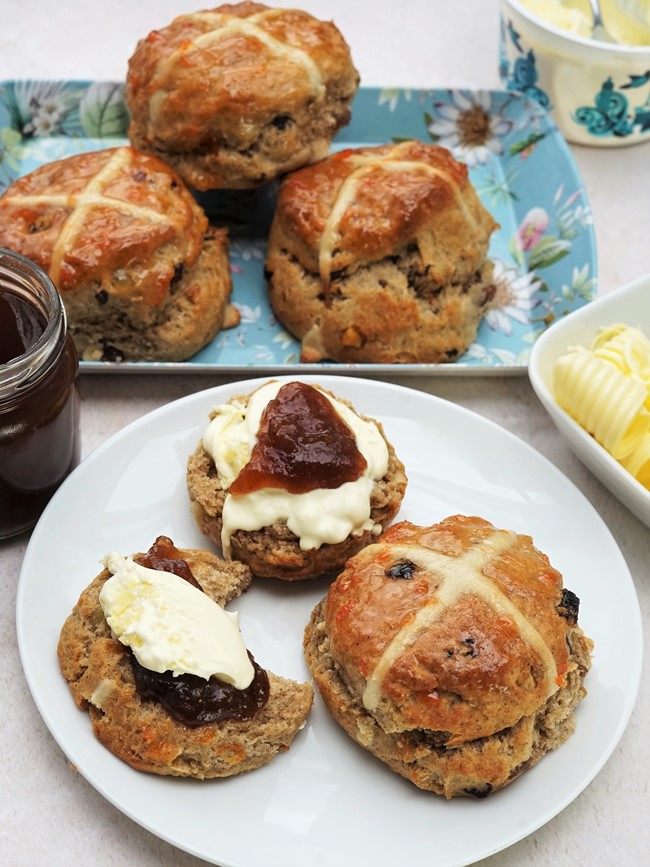
Eat the scones while still warm, split and spread with butter. Or, even better, pile on the clotted cream and jam.
Although best eaten within two days, you can make Hot Cross Scones in advance, freeze, and enjoy as an easy Easter treat.
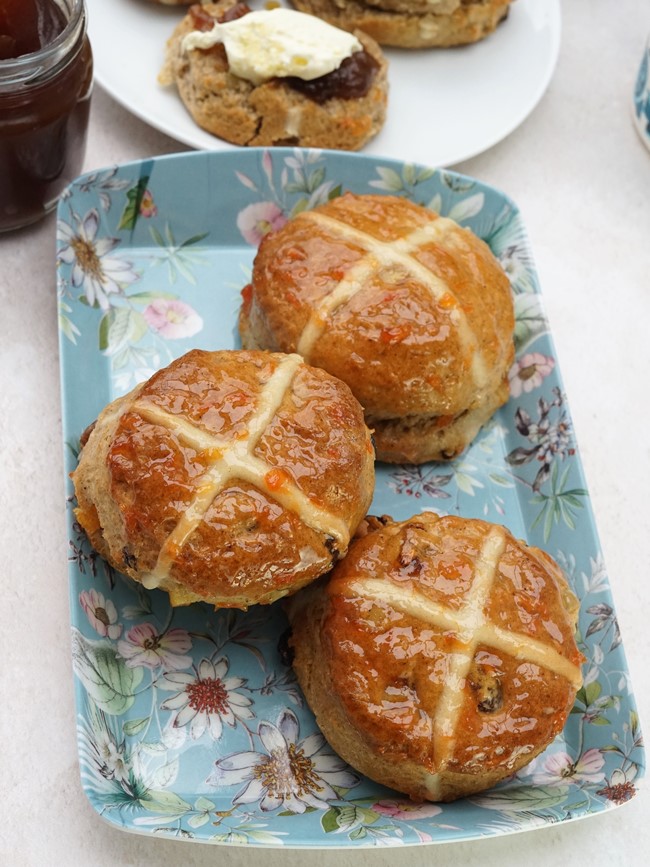
Jump to Recipe
When is a hot cross bun not a hot cross bun?
When it’s a quick and easy, homemade Hot Cross Scone!
Don’t get me wrong. I love a hot cross bun. I’ve even posted THREE recipes: classic Hot Cross Buns, buttery Brioche Hot Cross Buns. and fluffy Japanese milk bread-style Shokupan Hot Cross Bun Loaf.

But the traditional Easter bun contains yeast. And that means, even with my no-knead method, extra time required for proving.
Want something quicker that’s just as good? That’s where Hot Cross Scones come in.

They have all the spice, all the sweet, dried fruit of a hot cross bun, and even the cross and shiny glaze. But these light and fluffy scones can be put together and baked in less than half an hour.
You can eat them just the same as a hot cross bun, spread with butter.

But I love to treat Hot Cross Scones like the rather special Easter scone they are: slathered in rich clotted cream and jam (preferably my fittingly spicy homemade Apple Butter 😋).
Doesn’t that sound good? And all in a fraction of the time it takes to make hot cross buns.
HOT CROSS SCONES: A TWIST ON CLASSIC SULTANA SCONES
My recipe for Classic Sultana Scones (and my Very Cheesy Cheese Scones) are among my most popular.
One commentator, who’s been making scones for 50 years said mine were “the best sultana scones ever!!”.
So it made sense to base my Hot Cross Scones on tried and tested Classic Sultana Scones.
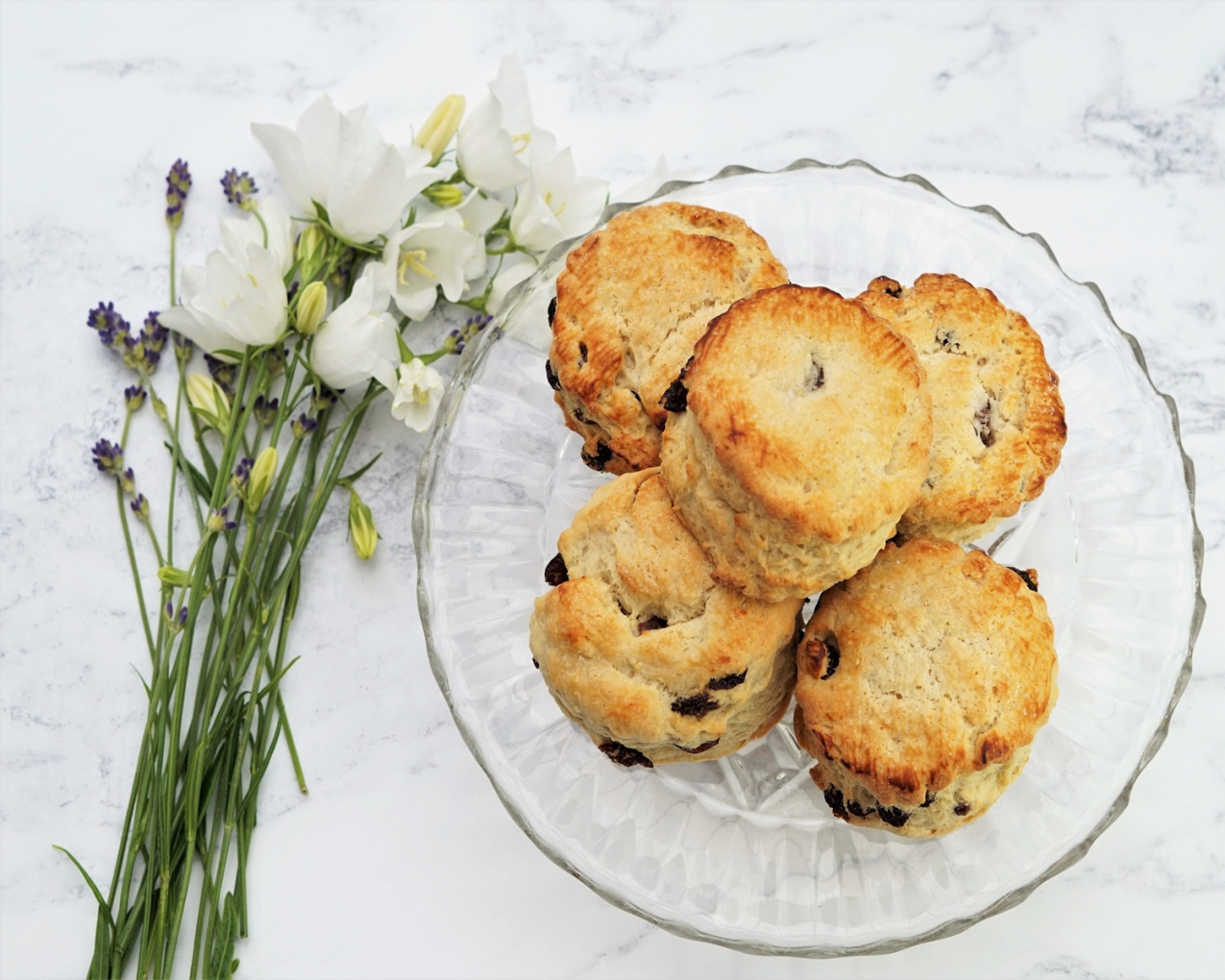
I think there’s two great things about British fruit scones.
Firstly, most households, traditionally at least, will have all the ingredients to hand: flour, butter, sugar, dried fruit, and milk. I see many recipes that also include egg, but to me that isn’t traditional or even necessary.
Second, they’re so quick to make. Dead simple, you can whip up a batch in around thirty minutes. And that includes the baking time.
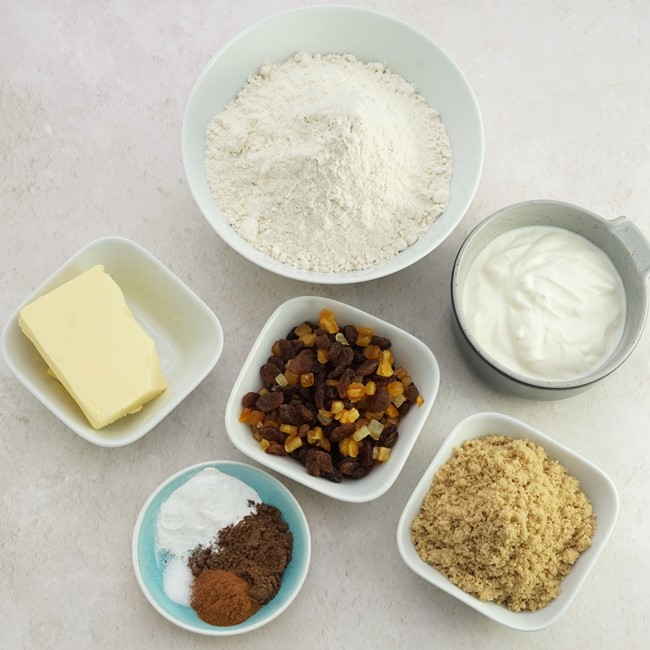
INGREDIENTS
You’ll find ingredient amounts in the detailed recipe card at the end of this post. But here’s a quick rundown of what you’ll need.
- Self-raising flour. To get nicely risen scones, make sure your flour is well within the Best Before date. Its raising power can also drop quickly once open, so don’t use self-raising flour that’s been hanging around for months.
- Baking powder. Although, obviously, self-raising flour contains raising agents, it doesn’t do any harm to give it extra help with some baking powder. As with the flour though, don’t use old stock that’s lost its oomph.
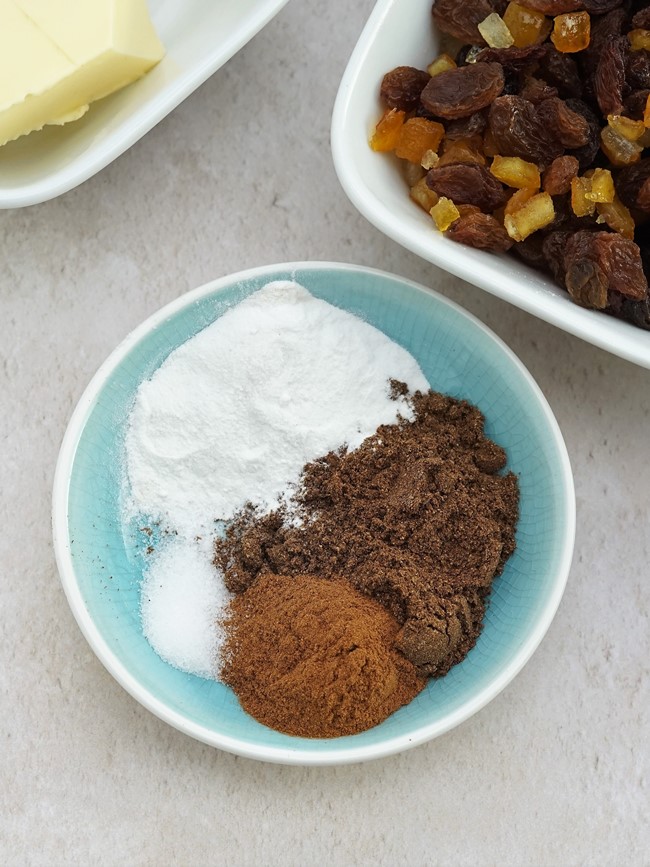
- Spices. The distinctive warm spiciness of hot cross buns comes from a particularly British blend known as mixed spice. I like to add a sweetish note by slipping in some extra ground cinnamon too.
- Salt. Just a pinch to balance the sweet elements.
- Sugar. While I use regular caster sugar for my Classic Sultana Scones, I think the hot cross version benefits from the caramel-like flavour of light brown soft sugar.
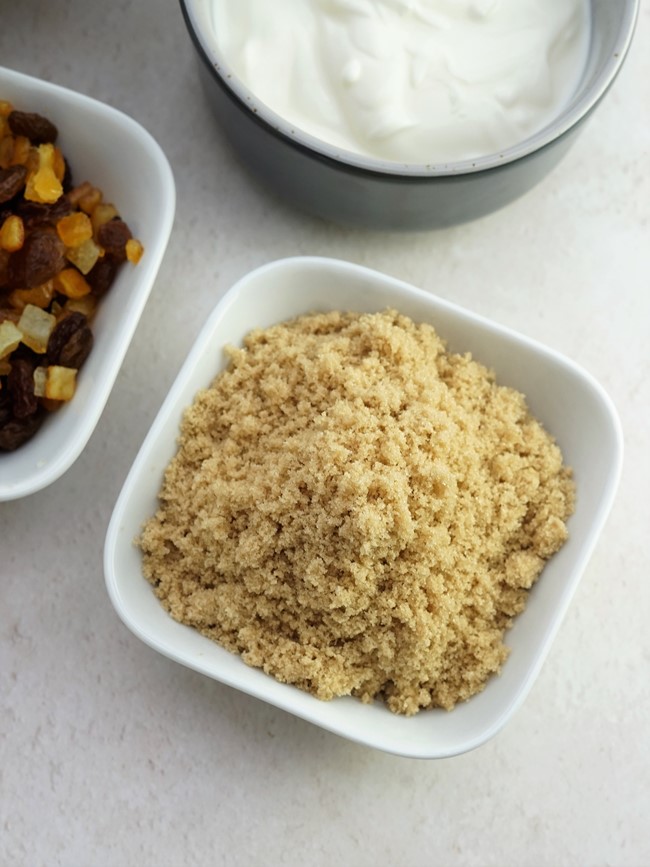
- Dried Fruit. I didn’t used to like mixed peel, but now I love it. And hot cross buns just aren’t the same without their sharper notes. I use a ratio of sixty percent sultanas to forty percent peel. Or you could just use mixed dried fruit if that’s what you have.
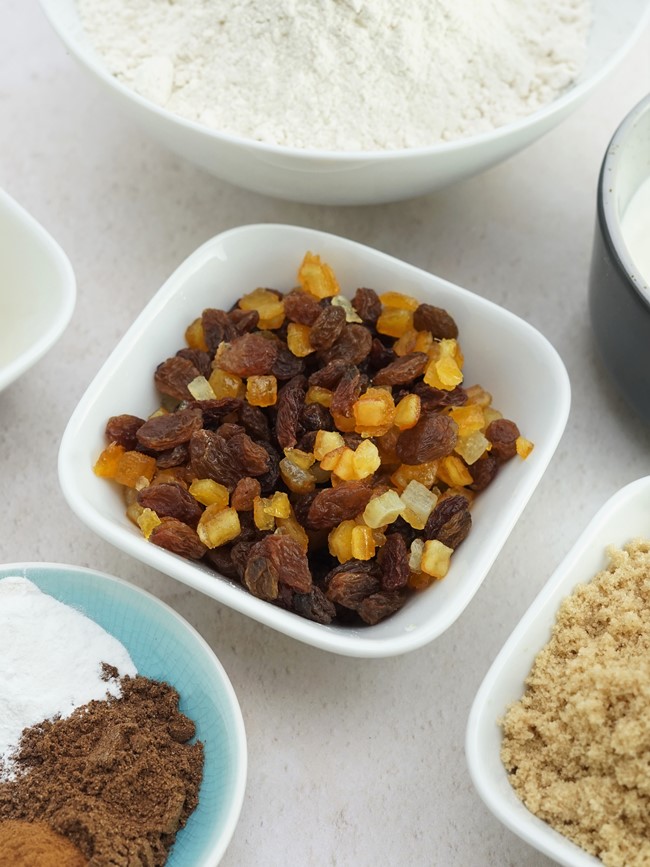
- Butter. For wonderful richness.
- Yogurt or alternative liquid. I use plain, full-fat yogurt in all my scones. I often make my own yogurt and find it makes the scones light and fluffy. If you prefer, you can use milk, buttermilk, or virtually any combination of yogurt, milk and/or buttermilk.
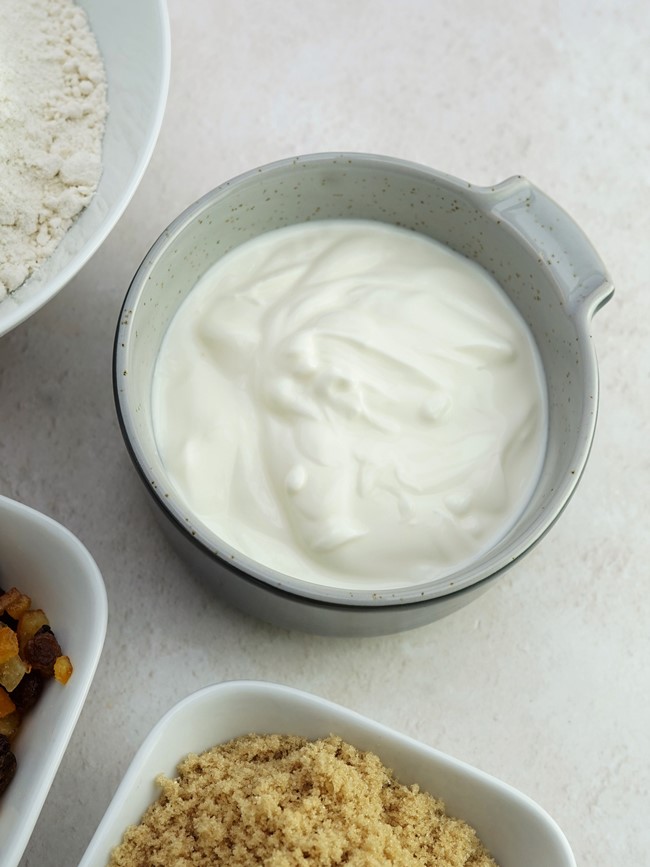
You’ll need a couple other simple ingredients for the cross and glaze, but I’ll come to those later.
EASY HOT CROSS SCONES
As with all traditional British scones, the method for my Hot Cross Scones is wonderfully simple.
MAKE THE DOUGH
To make the dough, start by sifting together the flour, baking powder, salt and spices. If you like, sift them twice to incorporate even more air for a lighter scone.
Then rub in the butter with your fingertips before stirring in the sugar and dried fruit.
Different flours absorb different amounts of liquid so it’s difficult to be precise about how much yogurt or other liquid you’ll need to create a soft but not wet dough. I suggest you start with the lower amount shown in the detailed recipe and add more as necessary.
Use a plastic or rubber spoon to start bringing the mixture together as you add the liquid, then switch to gently using your hands.
Transfer the dough to a lightly floured work surface and you’re ready to roll and cut out the scones.
ROLLING & CUTTING OUT SCONES
These days, when I’m going to be rolling dough, I cover my work surface with a silicone mat which makes it (and clean-up), much easier.
To keep the finished scones light, soft and fluffy, it’s best to handle the dough as little as possible. So just give it a few seconds’ light kneading to bring the dough into a ball then flatten slightly before rolling out.
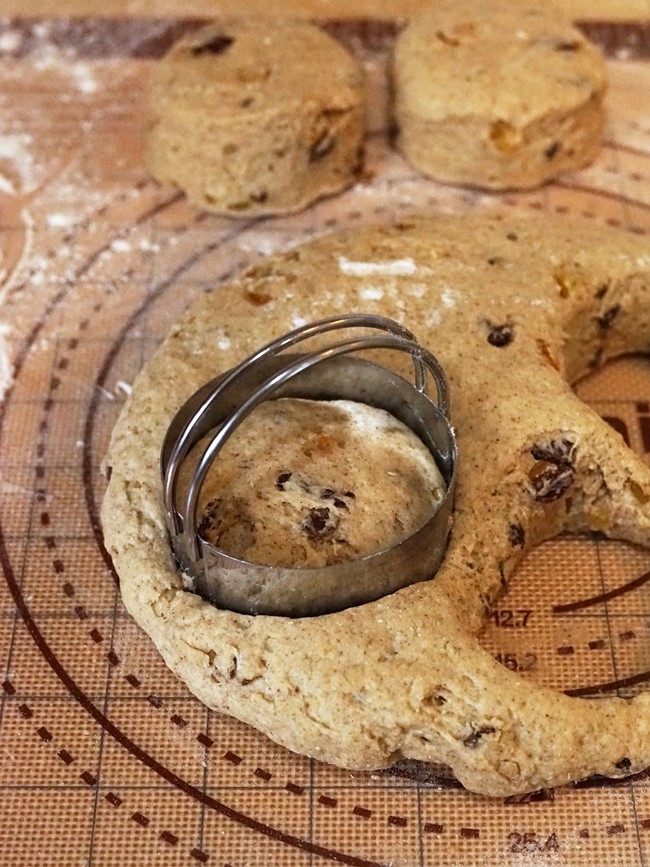
For a nice, tall scone, don’t roll out any thinner than 2.5 – 3 centimetres. Obviously, you’ll need a deepish cutter too.
On the other hand, cut your scones too thick and they could collapse in the oven, especially if your dough was a little wetter than is ideal.
A tip for getting evenly risen scones, besides rolling the dough evenly, is to try not to twist the cutter as you stamp them out.
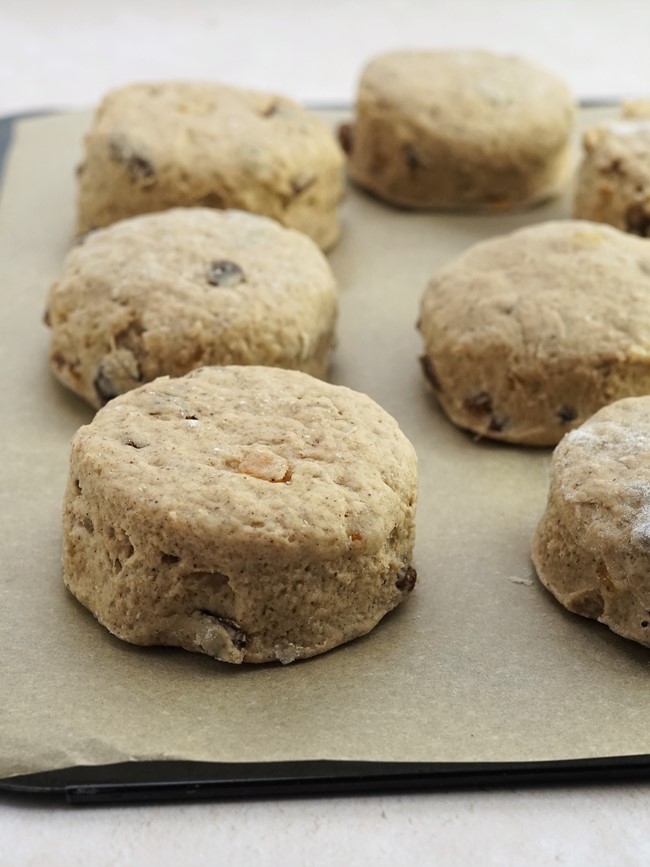
Transfer the scones to a baking tray and re-roll the scraps to make more until all the dough is used up.
Using a 6-7 cm cutter should give you 8 Hot Cross Scones.
ADDING THE CROSS
I see many hot cross bun recipes with a rather thick cross. Often made with a flour and water pastry that’s cut into strips and stuck on, not only do they look unattractive, but I think they’re hard and unpleasant to eat too.
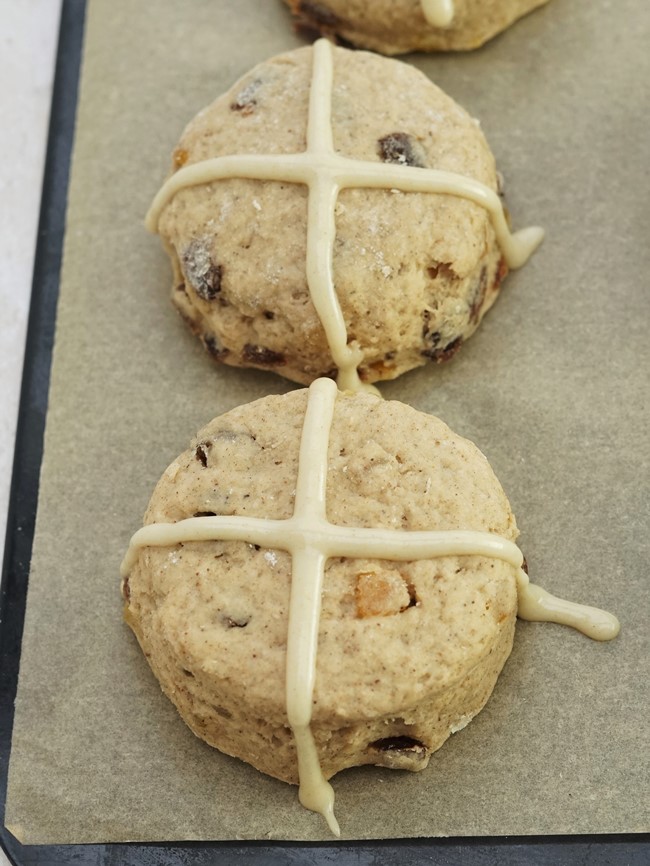
Preferring a little softness and sweetness, I mix up a pipeable paste of plain flour, icing sugar and water.
For my Hot Cross Scones, I also added a drop of sunflower oil for added stretchiness.
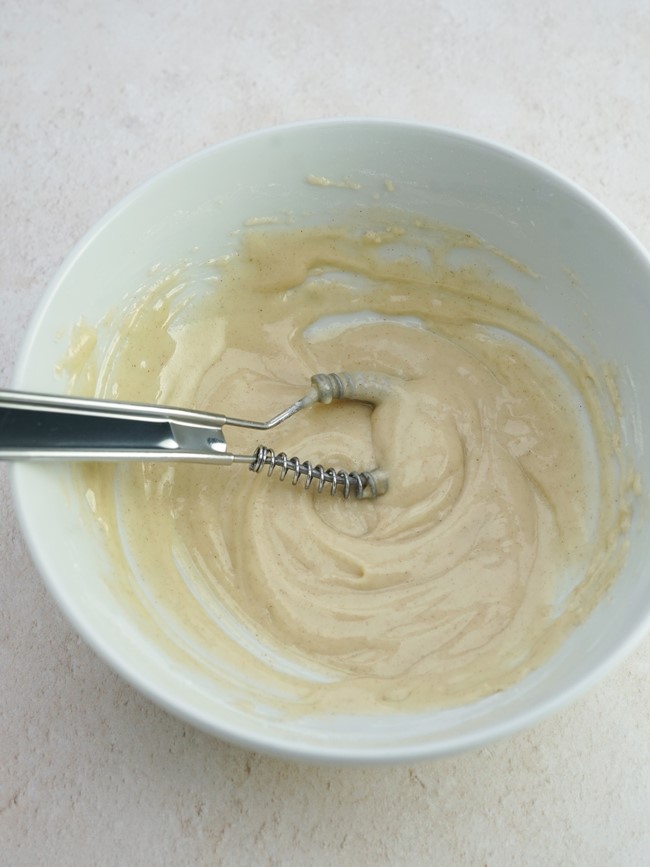
Rather than using a piping bag to put the crosses on (too fiddly for me), I use the squeezy-bottle type.
They’re very cheap to buy, come in different sizes, and are good for drizzling sauces and dressings too.
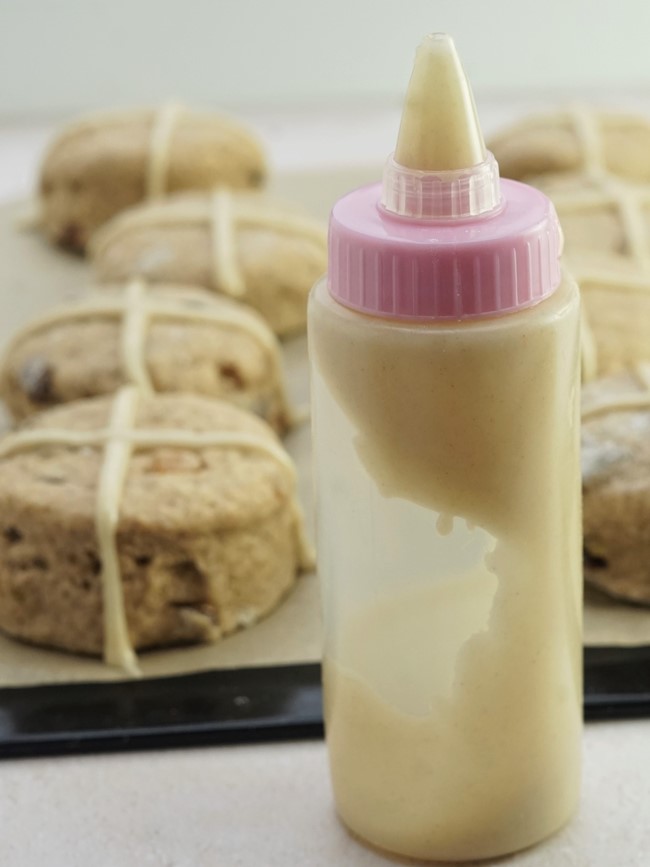
All you do, just before baking the scones, is pipe a cross on each one.
Use a small diameter nozzle as the paste will spread a little.
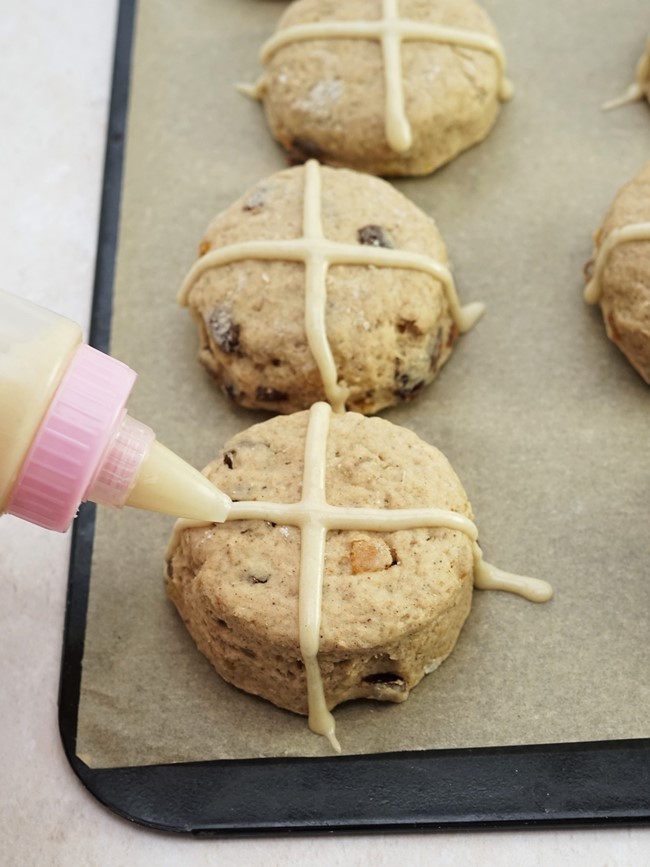
Your scones are now ready to bake.
BAKING & GLAZING
Depending on how thickly you rolled the scones, they should take just 13 – 15 minutes to bake.
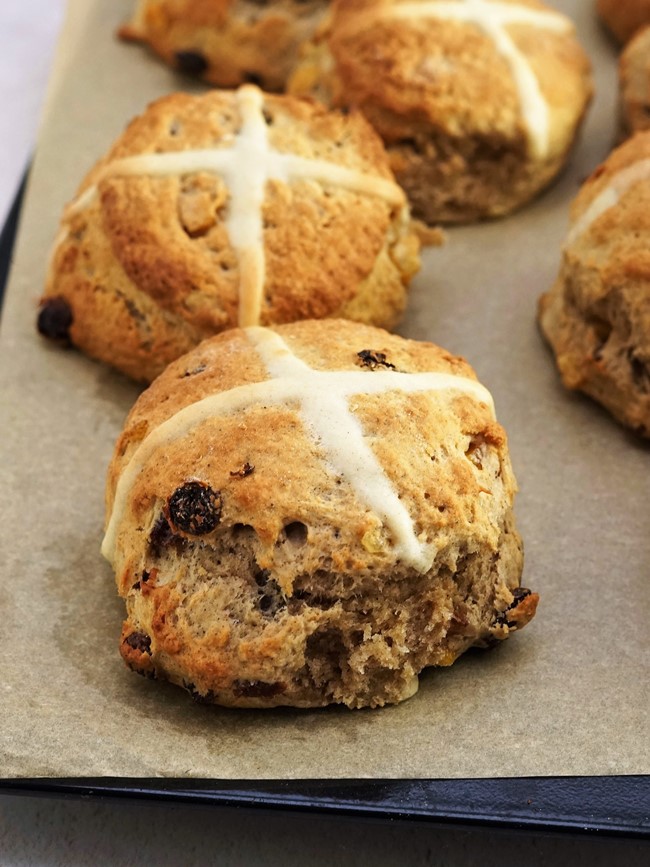
After removing from the oven, I transfer the scones to a wire cooling rack.
Now, to be worthy of the name Hot Cross Scone, I think these beauties really do need a sticky, shiny glaze.
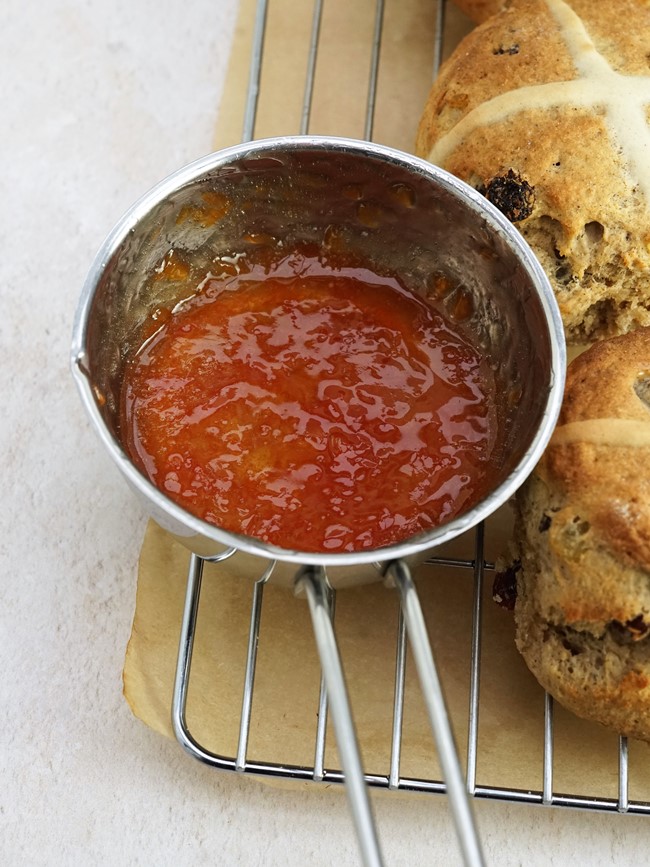
The most common things to use for this are apricot jam, marmalade, or honey. When I’ve had some of my homemade Dandelion Syrup made the previous Spring, I’ve successfully used that on hot cross buns.
But these rather special scones got a liberal coating of the tangy Grapefruit Jam I’d made a few weeks before.

Whichever preserve you use, slightly warm it first. This loosens it so it’s easier to brush on.
Add the glaze while the scones are still warm and get ready to dig in!
SERVING HOT CROSS SCONES
While, like all scones, this special Easter version is certainly best eaten warm, don’t be tempted to scarf them down immediately they’re out of the oven and glazed.
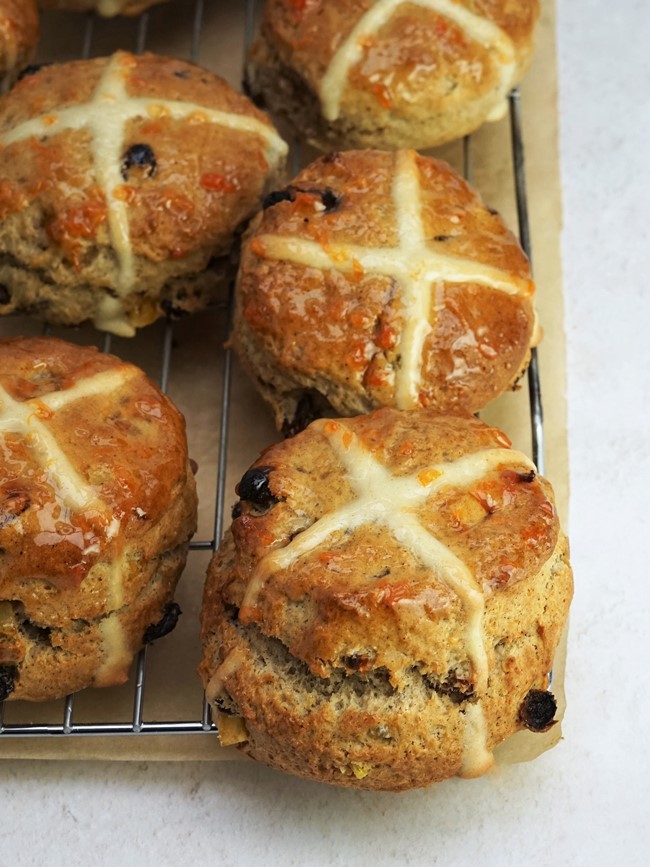
Despite their name, they should definitely be warm rather than hot: scones need a few minutes to ‘set’.
But then it’s no holds barred.
Gently twisting the scones in half, rather than cutting, will help to keep the light and fluffy interior intact.
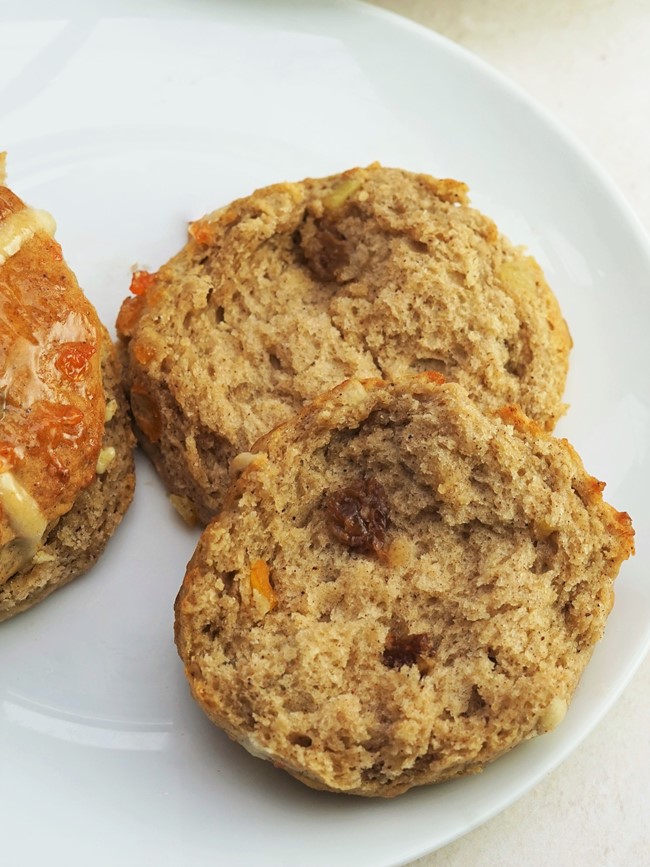
As with hot cross buns, at a minimum you’re going to want to slather on some butter.
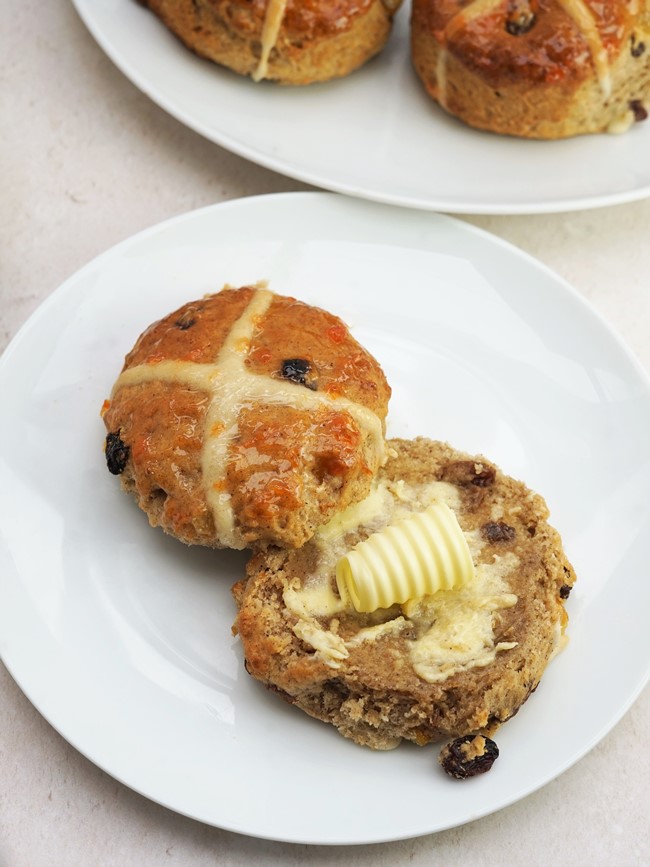
But surely you can’t stop there? After all, these are Hot Cross Scones.
And what makes a fruity scone even better than butter? Clotted cream and jam, of course.
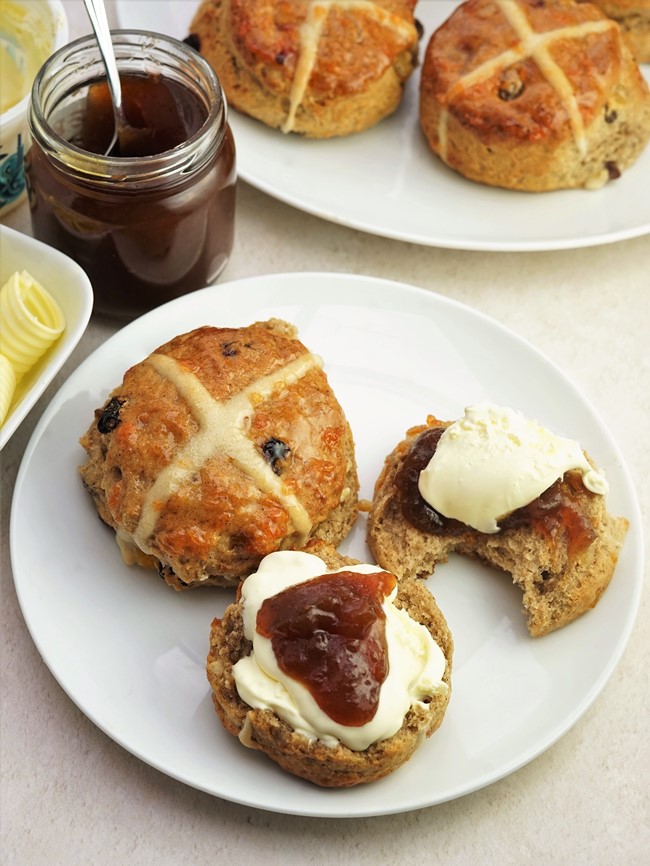
(By the way, I stepped away some time ago from the tiresome divide over #jamfirst or #creamfirst. I have my own preference but now just do both!).
I think almost any jam would go with these scones. But I went for a good dollop of my homemade, sweet, and spicy Apple Butter.
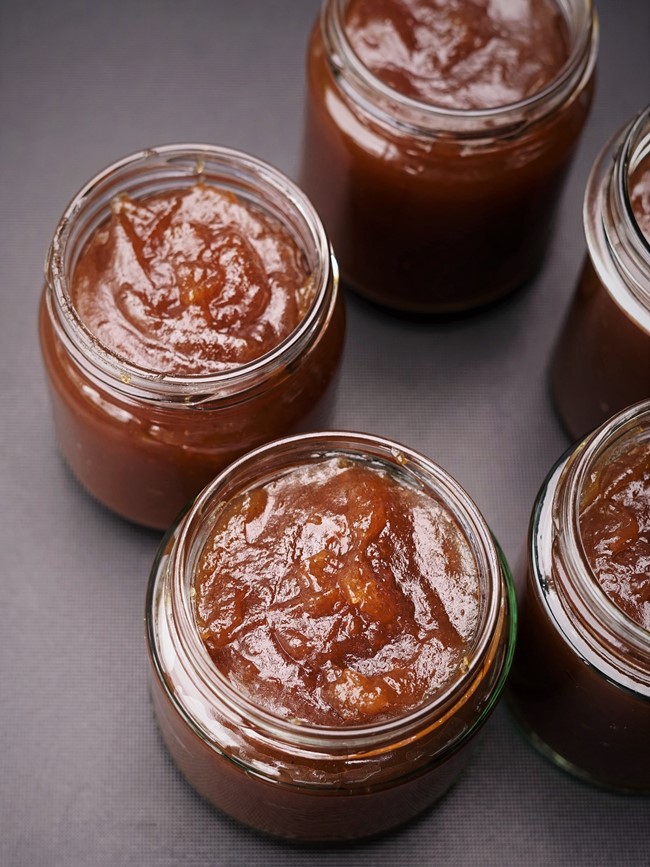
Not a butter at all in the dairy sense, Apple Butter is a traditional, concentrated preserve made by cooking into a caramelised and jam-like puree apples, water, sugar and spices.
Mine has cinnamon and cloves plus the tang of cider. It went wonderfully well with the spicy scones and contrasting rich, thick clotted cream. You could also use it for the glaze.
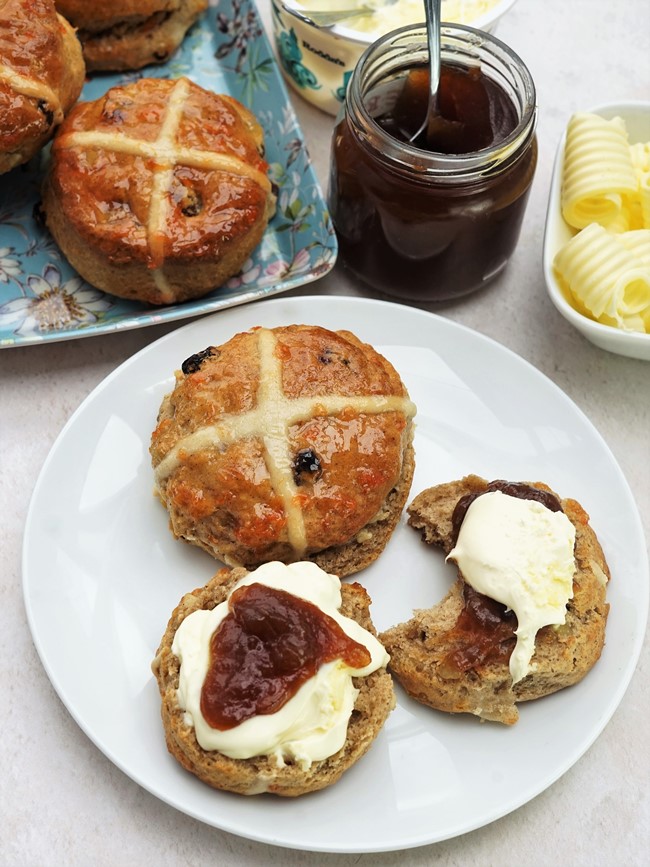
Best eaten on the day of making, but still good the next day, you can always make Hot Cross Scones in advance and freeze when completely cold.
EASY ALTERNATIVE TO HOT CROSS BUNS
Having encouraged people to make their own hot cross buns for a few years now, I’ve discovered something even easier.
Of course, Hot Cross Scones are not the same thing as the traditional bun based on bread dough.
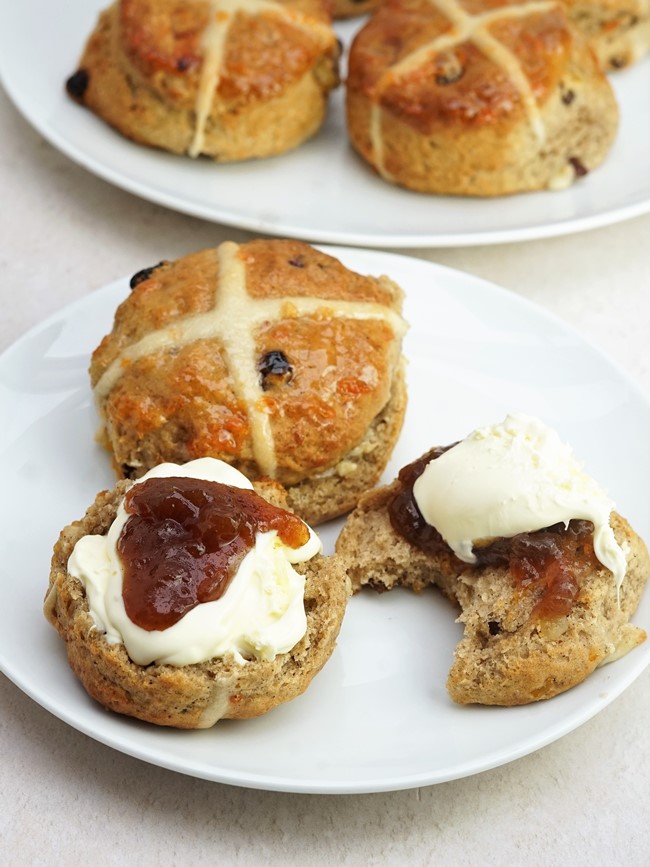
But I think they’re a great bake in their own right. Fruity and spicy with a tempting shiny glaze and light, fluffy interior.
Whip up a batch, spread with butter or, even better, clotted cream and jam, and I think you’ll agree.
HAVE YOU MADE THIS RECIPE?
LEAVE A COMMENT & DON’T FORGET TO RATE IT.
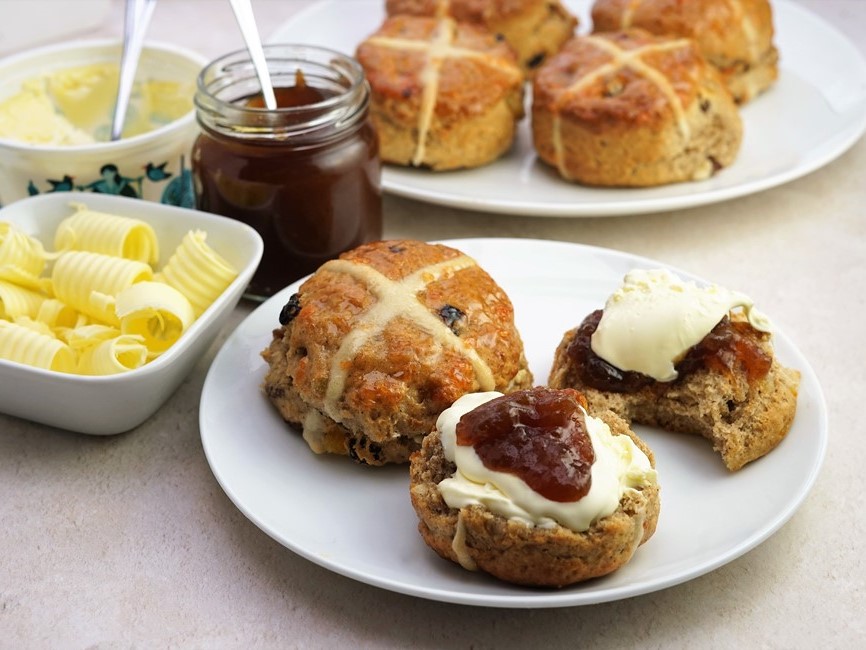

Hot Cross Scones
Quick and easy, light and fluffy alternative to hot cross buns, with no yeast or proving time, they're made in just thirty minutes.
Replace the sultanas and peel with mixed dried fruit if liked.
Ingredients
- 350 g self raising flour plus extra for rolling
- 2-3 tsp mixed spice see Recipe Note #1
- 1.5 tsp baking powder
- 1 pinch salt
- 90 g butter
- 100 g light brown soft sugar
- 60 g sultanas
- 40 g mixed peel
- 150-200 ml plain yogurt OR yogurt & milk, all milk, milk & water or buttermilk
For the crosses
- 25 g plain flour
- 15 g icing sugar
- 1 drop bland oil e.g. sunflower
- 1.5 tbsp water
For the glaze
- 1 - 2 tbsp marmalade, apricot jam or honey
To serve
- butter
- jam and cream optional: see Recipe Note #2
Instructions
-
Line a baking tray or lightly grease it.
Preheat the oven to 200C/180C Fan/Gas 6.
-
Make a paste for the crosses by stirring together the plain flour and icing sugar then whisking in the oil and enough water to make a thick paste which can be piped.
Transfer to a piping bottle or bag and set aside.
-
Stir together the self raising flour, spice, baking powder and salt then sift into a mixing bowl. (Sift twice for even lighter scones).
Grate in the butter (dip the butter into the flour mixture now and then to stop it sticking) then rub in using your fingertips.
Stir in the sugar, sultanas and mixed peel.
Stir in enough of the yogurt (or your chosen liquid) to form a soft but not wet dough.
-
On a floured surface, briefly knead the dough into a ball then lightly flatten it.
Roll out evenly and no less than 2½ - 3 cm thick.
Using a 6-7 cm cutter dipped into flour, stamp out scones: try not to twist as you press down as this can result in unevenly risen scones.
Place the scones on the prepared baking tray and re-roll the scraps to make more until all the dough is used up.
-
Pipe a cross on each scone using the paste you made earlier.
-
Put the tray in the pre-heated oven and bake until the scones are risen and golden (13-15 min). Transfer to a wire rack.
Lightly warm the marmalade, jam or honey to loosen it then brush over the tops of the scones.
Leave to cool for a couple of minutes.
-
Serve warm, split and spread with butter, or with cream and jam.
Tip: pull apart rather than cut to retain the light and fluffy texture of the scones.
If not using straight away, cool completely before storing in an airtight container.
Best eaten within 2 days or can be frozen.
Reheat in a microwave or covered in a low oven.
Recipe Notes
Note #1 I like to include a little ground cinnamon.
Note #2 To serve, I highly recommend spreading with either butter or clotted cream and some Apple Butter which is a spicy, tangy jam-like preserve.
RELATED RECIPES

